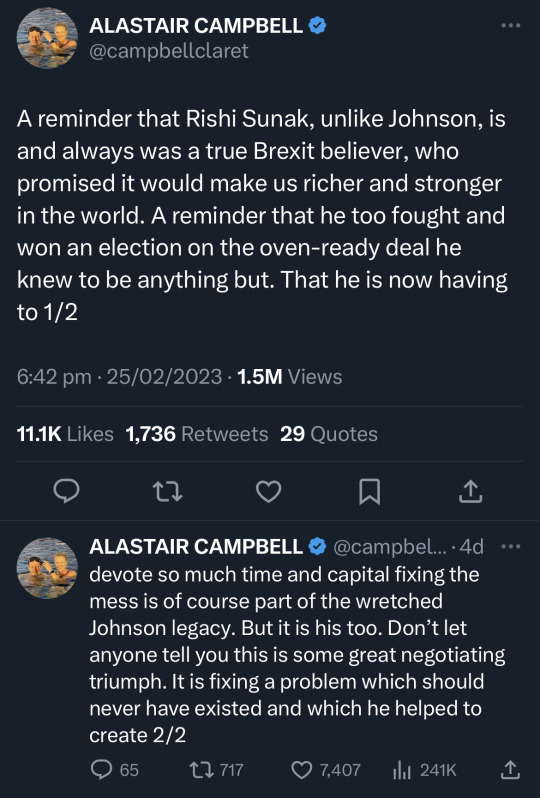#the brexit party
Text
Reform: The Tories haven’t implemented Brexit properly.
Reform: *Literally stood down candidates in over 300 seats in 2019 when they were the Brexit Party to help the Tories win in order to deliver Brexit.*
19 notes
·
View notes
Photo

“I swam in shit and I turned out fine. No, things should never improve. I am very clever.”
2K notes
·
View notes
Text
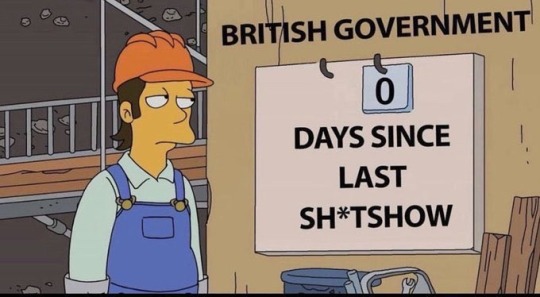
#uk politics#british politics#politics#tories out#brexit#vote#general election uk#conservative party#tories#liz truss
1K notes
·
View notes
Note
But wait! There's more!

when I say she's a dumb person's idea of a smart person... this is exactly how dumb I'd expect that person to be ^
(related to)
#anti what if#antipeggy#antisteggy#cynthia glass#p*ggy meta#mcu critical#steggy is hydra trash party#meta#mcu meta#this twitter is one of the morons responsible for bringing us yet more thrilling episodes of:#Mary Sue#Fraulein White Feminist#Steve's Magic Talking Intestinal Parasite#Cap's Official Stalker#Agent Brexit#Captain Coloniser#RatCorp's Answer to a question No. One. Asked.#the Ultimate Pick Me#Flogging A Dead Nag#etc.
101 notes
·
View notes
Text
649 notes
·
View notes
Text
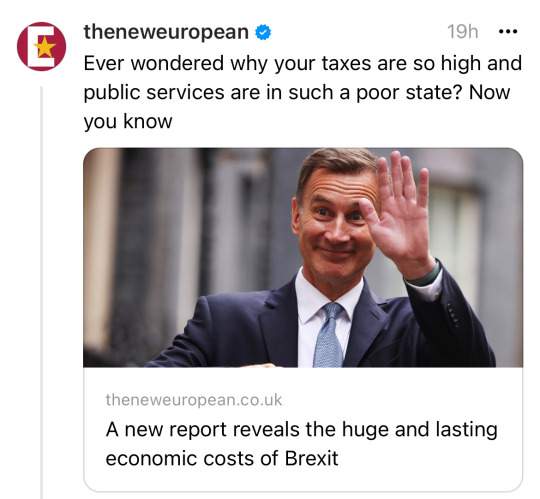
“Niesr’s latest study starts with some welcome honesty, Brexit is not the only cause of the UK’s problems – it has just added to the woes of the credit crunch and numerous other issues. With a resultant slowing of growth (and productivity which the latest data shows is actually still getting worse) it has cost the UK sorely. British workers should be about 10% better off than we are.”
#the new european#political threads#conservative party#uk economy#jeremy hunt#uk news#uk politics#rishi sunak#brexit
45 notes
·
View notes
Text
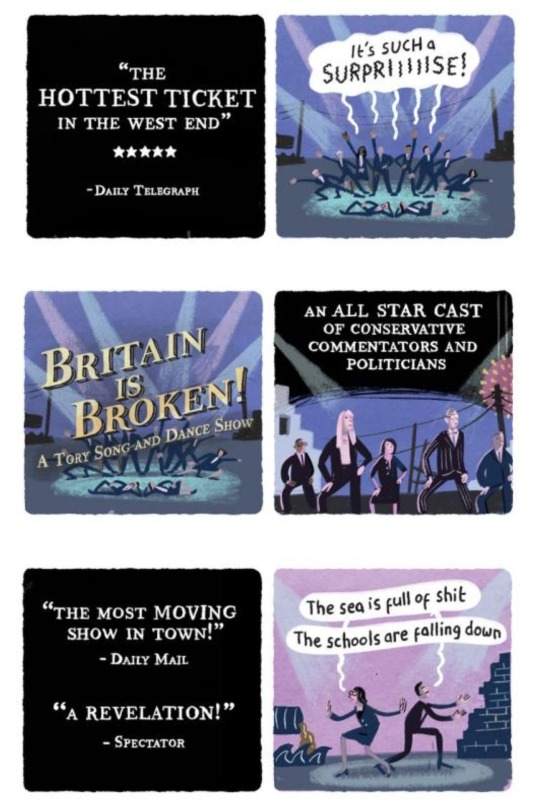
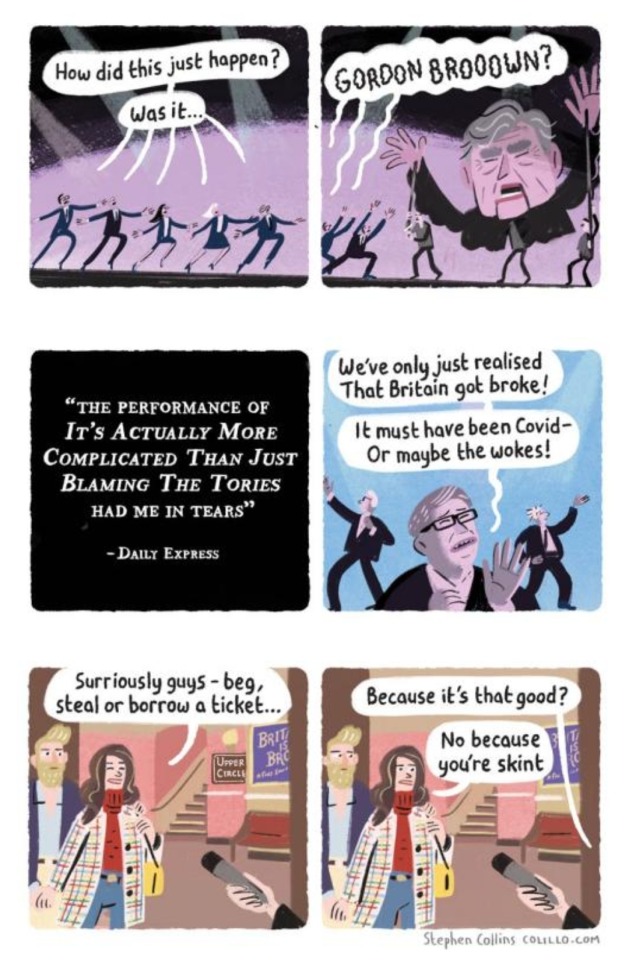
39 notes
·
View notes
Text
When Labour was elected with a big majority, there was a great sense of expectation of a sea change, and that the historical debt of the Labour Party to the miners would be redressed. There would be a serious program of social and economic regeneration for the former coalfield areas, hinging on the provision of decent, well-paid manufacturing jobs, not only for the current miners but also for the future generations.
Then, it became clear that Blair’s view of regeneration was to sell these areas to mobile international capital. Some of it originated from the United States, some from Southeast Asia. Blair’s policy didn’t produce enough jobs, and the jobs that it did produce bore no comparison, in terms of wages, to those that had been available in the mines.
Many of these jobs were not in manufacturing, but instead in call centers — they were poorly paid, part-time, and often precarious. The new economy that Blair’s government built up was not at all what people had expected, and it did not fit with what they were led to believe was Labour’s commitment to the coalfield areas.
Having hit a high point in electoral support for Blair in 1997, the Labour Party had its support progressively eroded after that, as people became more and more disillusioned with the Thatcherite policies the Labour Party had pursued and the party’s inability to effectively combat the austerity politics of the Tory coalition in 2010.
The opportunity to express disillusionment came with the Brexit vote. Those who had suffered as a consequence of industrial decline and the subsequent austerity policies of the previous two or three governments could voice their opposition to the political establishment.
The Conservatives were largely in favor of Brexit. Senior figures in the Labour Party wanted to stay in Europe. In a sense, staying in Europe was seen as a sort of a class project — a certain fraction of the educated, middle-class political establishment had an interest in remaining in Europe.
Brexit provided an opportunity for those in the areas that had suffered as a result of the previous thirty or forty years of economic policy to say, “If you’re in favor, we’re not. We’re not necessarily against our brothers in Europe, but we’ve had enough of being treated this way, and both major political parties have ignored our legitimate demands for decades.”
This trend manifested in the subsequent election results. In 2019, Boris Johnson returned with a massive majority. In the North East, sometimes for the first time ever, conservative MPs were returned in districts like Blair’s, which had been solidly Labour for as long as anybody could remember.
Something similar happened in South Wales: The Labour vote declined, but the opposition vote was split between the Tories and Plaid Cymru, the nationalist party. Labour held onto the seats, but Brexit was a turning point in Labour support in these areas. People wanted something different.
36 notes
·
View notes
Text
Former PM David Cameron becomes Lord Cameron of Chipping Norton - BBC News
Another Eton-educated, arrogant Tory tosser, former PM David Cameron, effectively brought the country down and set Britain back decades by pushing his austerity agenda (robbing the poor to give to his party's rich cronies) from 2010 onwards, and then beginning the process of causing Britain to leave the strong economic union of EU countries... the disastrous Brexit.
After fucking up the country he ran away from the consequences by resigning. What a cowardly shit.
Now he's given the title of 'Lord' Cameron to try and save the corrupt, crooked, Russian-backed Tory Party from further diplomatic blunders.
Appointing him is like rearranging the deckchairs on the Titanic.
#uk politics#british politics#conservative party#fuck the tories#britain#tory party#uk#rich v poor#cost of living crisis#Brexit#worst ever prime minister except johnson and truss#cameron
14 notes
·
View notes
Text
Babe wake up! New Brexit benefit just dropped. We are all now entitled to Scurvy
#british politics#uk politics#fuck the tories#tory britain#rishi sunak#brexit#brexit britain#fruit and veg shortage#tories#the conservative party#ukpol
59 notes
·
View notes
Photo

CATALYST JOURNAL
The Brexit crisis dominated British politics between 2016 and 2019. Its outcome will shape the UK’s relationship with Europe for decades. One factor above all decided that outcome: the determination of Britain’s right and center alike to contain a left-wing upsurge inspired by Jeremy Corbyn’s leadership of the Labour Party.
Between 2014 and 2019, there were three upsurges that attempted to break the mold of British politics: the Scottish independence movement, the campaign for Brexit, and the mobilization around Jeremy Corbyn in the British Labour Party. They sought, respectively, to shrink the borders of the United Kingdom, to sever its links with the European Union, and to overturn the social settlement that has governed its class relations since the 1980s.
Their combined effect was to generate a political crisis such as Britain had not seen for decades, with its governing institutions effectively paralyzed for months at a time. The unresolved Scottish question is likely to remain a source of contestation over the years to come. But the outcome of the 2019 general election simultaneously buried Corbynism and ensured that Brexit would go ahead on terms dictated by Boris Johnson and the right wing of the Conservative Party.
The fact that these challenges unfolded more or less simultaneously was no coincidence. They all came in response to long-term dysfunctions of the British political system and its governing parties, which the economic crash of 2008 had greatly exacerbated, and they interacted with one another throughout the years of crisis. The campaign for Scottish independence, which requires careful study in its own right, was located exclusively in one part of the UK that has its own distinct political culture. In what follows, I will concentrate on the relationship between Labour and Brexit under Corbyn’s leadership, which was crucial for the fate of both, but which remains poorly understood in Britain itself, let alone the wider world.
Johnson’s triumph at the end of 2019 could not have happened without a convergence of interests between right and center in British politics that transcended their divisions over Brexit. When push came to shove, the leaders of these political tendencies joined forces to ensure the defeat of a left-wing project that appeared capable of forming a government. Johnson’s Brexit deal was a price that centrist politicians and opinion formers gladly paid in order to marginalize the socialist left and regain control of the Labour Party.
BEFORE BREXIT
Corbyn’s victory in the 2015 leadership contest came as an unwelcome shock to most Labour MPs, and to the country’s media. The tendency that he represented had spent the previous generation on the margins of the Labour Party, excluded from any position of real influence.1 When the party hierarchy decided to adopt a new system for electing its leader, entrusting the Labour membership with responsibility, they never imagined what was going to happen in 2015. Corbyn’s landslide owed at least as much to the weakness and complacency of Labour’s right-wing faction as it did to the discovery of unexpected strength on the British left.2
A large section of the Parliamentary Labour Party (PLP) simply did not accord the new leader basic legitimacy. Much of the British media followed their example, including ostensibly nonpartisan outlets such as the BBC, which reported on Corbyn’s leadership primarily from the vantage point of his factional opponents.3 This compounded the inevitable problems that stemmed from lack of experience and preparation time: Corbyn and his team had to do the work that would normally precede taking control of a major political party after they had already been thrust into the spotlight.
This was the backdrop against which Corbyn had to face the Brexit referendum during the opening months of his leadership. First coined as recently as 2012, the term “Brexit” referred to a political project that originated within the British right. Conservative prime minister David Cameron had agreed to hold a plebiscite on Britain’s membership in the EU because of pressure from his own right-wing current and the electoral competition of Nigel Farage’s UK Independence Party (UKIP). When the Conservatives unexpectedly won a majority of seats in the 2015 general election, ending their coalition pact with the Europhile Liberal Democrats, Cameron had to follow through on his commitment.
To the prime minister’s surprise, senior Tory politicians like Boris Johnson and Michael Gove decided to join the campaign against EU membership, which became known as the Leave camp — an effort that also had the support of Britain’s two most popular newspapers, the Sun and the Daily Mail. Right-wing opposition to European integration was hardly unique to Britain, but the purchase of such views within a major party of government certainly was. In the rest of the EU-15, one could never imagine a referendum of this kind being held in the first place.
Brexit posed a particular dilemma for Labour’s new left-wing leadership. Pro-EU attitudes were deeply entrenched in the Labour Party. This dated back in particular to a speech Jacques Delors had delivered to Britain’s Trades Union Congress in 1988, in which he promised to construct a federal structure that would “preserve and enhance the uniquely European model of society” based on “similar mechanisms of social solidarity, of protection of the weakest, and of collective bargaining. … It would be unacceptable for Europe to become a source of social regression.”4
The fact that European leaders never translated such rhetoric into practice, while embedding neoliberal doxa in the structures of the eurozone, barely registered with the British center left. This was partly because the prevalence of right-wing Euroscepticism obstructed any serious discussion of what the EU actually was, and partly because Britain stayed out of the single currency. It was easier to maintain unrealistic fantasies of a “social Europe” that had already taken shape because the EU played a very limited role in Britain’s own, largely homegrown form of neoliberalism.
(Continue Reading)
22 notes
·
View notes
Text
“The 4th of July is a day of reckoning for the chaos and calamity the Conservatives have brought and for the harm they have done. On election day, the Tories don’t deserve merely to lose. They deserve to be punished.”
Couldn’t agree more.
Austerity, Brexit lies, Covid incompetence, corruption and mismanagement. Inflicting, Cameron, May, Johnson, Truss and Sunak on the public.
2 notes
·
View notes
Text
the essay i submitted today was for my economic history module and my question was on the little divergence and how a pandemic (the black death in this case) can impact development so obviously in my conclusion i was chomping at the bit to mention miss covid and somehow it just devolved into me slagging off the government. like i mentioned austerity. brexit snuck in there. if my prof turns out to be a tory i am actually fucked
#LIKE I JUST DIDNT NEED TO BE TALKING ABOUT THAT STUFF EITHER#IT JUST CREEPED IN#luckily im 90% sure she's a left winger bc she's always been nice#so i might have actually GAINED marks#still it's a very very unnecessary risk LMAO#i was typing it like i was possessed fingers flying over the keys while i mutter 'what the fuck am i doing what the fuck am i doing what-'#i need to stop thinking about this essay im just kinda disappointed bc it was my good subject and i acc enjoy it to an extent#but i feel like the essay just wasn't as good as i wanted it to be#but it's done now and i at least know i shouldnt FAIL so there's that#watch my prof be in the brexit party now#live love laugh#hella goes to uni
22 notes
·
View notes
Text
You know that trick with the ball and the cups? Watch the cups very closely as they move around
1) The government borrows money in gilts which the Bank of England buys
2) Government guarantees that Bank of England will be repaid and won’t make losses
3) So the government is giving the Bank of England the money to buy bonds to allow the UK government to borrow money from the Bank of England
Round and round the cups go
The end result is money printing and massive inflation, like we are talking Weimar Germany wheelbarrows of money if you aren’t careful
The tories know they are fucked in any coming election and will likely be out of power for a generation, so they are going full scorched earth looting the nation for all they can get
87 notes
·
View notes
Text




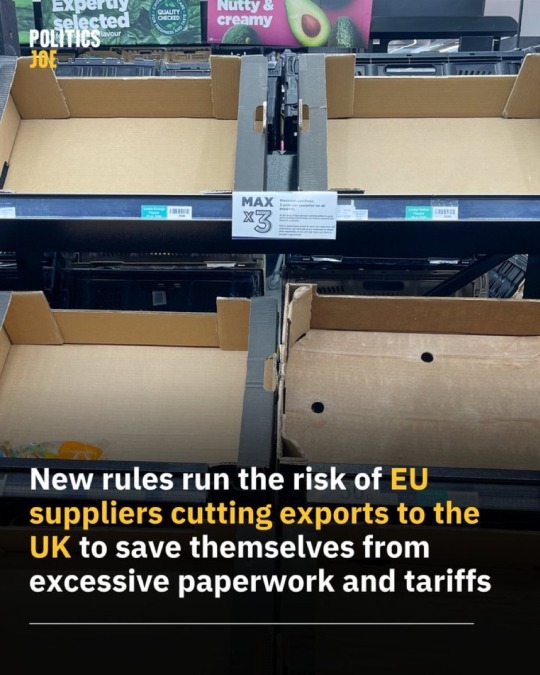
#brexit#rishi sunak#uk#politics#tory#conservative party#ge2024#ge2025#ukpol#general election#tories#tariffs
28 notes
·
View notes
